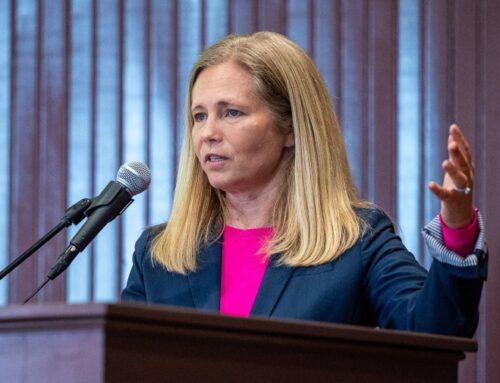Time to pull the plug on solar subsidies
May 29, 2025
Last week, President Donald Trump’s “Big, Beautiful Bill” passed the US House. And because it was so big (and in many parts beautiful), people have been busy since, discussing all its various elements. The fact that the bill eliminates subsidies for solar energy, and instead favors more traditional energy sources is certainly among the most-talked-about elements.
Of course, conservatives are fairly unified on the principle that permanently subsidizing a product, especially when there are more efficient and reliable alternatives, is wasteful and unfair to its competitors.
Jon Sanders, director of the John Locke Foundation’s Center for Food, Power, and Life, has produced research over recent years showing if North Carolina takes a path to carbon neutrality built on solar and wind, it will lead to a more-expensive, less-reliable energy future. Instead, his research suggests a path that uses natural gas and nuclear energy will be more affordable and reliable.
So, in that big-picture view, and taking into account the fact of our unsustainable national debt, eliminating an expensive tax credit that contributes to an inferior energy future is a net positive.
But some US Senate Republicans, North Carolina’s own Thom Tillis among them, believe it’s not just a matter of political philosophy, asking us to also consider all the disruptions it would cause to those who have invested or work in this industry.
In a letter to US Senate Majority Leader John Thune, Tillis and his co-signers (Sens. Lisa Murkowski, John Curtis, and Jerry Moran) said:
“While we support fiscal responsibility and prudent efforts to streamline the tax code, we caution against the full-scale repeal of current credits, which could lead to significant disruptions for the American people and weaken our position as a global energy leader… Many of the investments that make this possible are enabled by current tax provisions, including some from the Inflation Reduction Act… The United States produces some of the cleanest and most efficient energy in the world, and an all-of-the-above approach—including support for traditional and renewable energy sources—has long been a hallmark of our energy strategy.
While this April 9 letter maintains a little plausible deniability, never outright saying, “Please keep the 30% rooftop solar subsidy,” its meaning was fairly clear to most observers. And the solar industry took it as a full-throated defense of their position.
But the cuts to rooftop solar remained in the final House bill and were passed over the objections of these senators and by a similar group of House Republicans. Unsurprisingly, the market reacted as the solar industry feared it would.
A Reuters article detailed the immediate and dramatic plummet of solar company stocks after the House passed the bill: “Sunrun (RUN.O), led the market rout, with shares falling nearly 41% in early morning trade, SolarEdge Technologies (SEDG.O), slid nearly 26%, Enphase Energy (ENPH.O), was down 17.7% and Complete Solaria (SPWR.O), fell over 15%.”
The article makes clear what they assume the cause was, following up with, “The bill [if passed by the Senate] would remove the 30% federal tax credit for taxpayers who install solar rooftop systems, posing a significant challenge to the industry.”
So, their product has been subsidized to the tune of 30%, and without that taxpayer money, they (and investors) are just not sure they can make it work any more. As another Reuters article put it, “Project developers and manufacturers that benefit from the subsidies said the rollback would shutter factories, kill jobs and increase electricity costs for U.S. households.”
That is, of course, a bad thing for the people and companies involved, many of which are in North Carolina. But if the federal government makes the poor decision to subsidize an industry to this degree, and a lot of people have subsequently come to rely on these jobs for their livelihood, that doesn’t mean we have to keep that arrangement in perpetuity.
Solar will likely have a place in the energy future, at the very least as a good solution for those who live too far out to affordably be added to the wider “grid.” But it will always have the disadvantage of not generating power when the sun is down, necessitating a massive battery network and backup baseload power — problems that nuclear and natural gas do not have.
As the Biden administration was gearing up to implement many of their renewable-energy goals, they would frequently use the framing of a “just transition” of workers from the fossil-fuel sector to “green jobs.” Ironically, we may need to think about this as people transition out of these green jobs.
If the solar industry recedes in North Carolina due to the loss of federal subsidies, hopefully jobs will be available producing the energy sources of the future — reliable, abundant, clean, efficient fuels like nuclear and natural gas.
There are a lot of jobs going unfilled in every industry, especially in things like advanced manufacturing. So the skilled engineers, factory workers, and technicians that work for the solar industry could be great pick-ups for other industries hurting for high-quality employees. But regardless, it’s time to pull the plug on solar subsidies.
The full letter from Tillis and his cosigners can be viewed below:
energy_tax_credits_letterDownload
Search
RECENT PRESS RELEASES
Related Post



